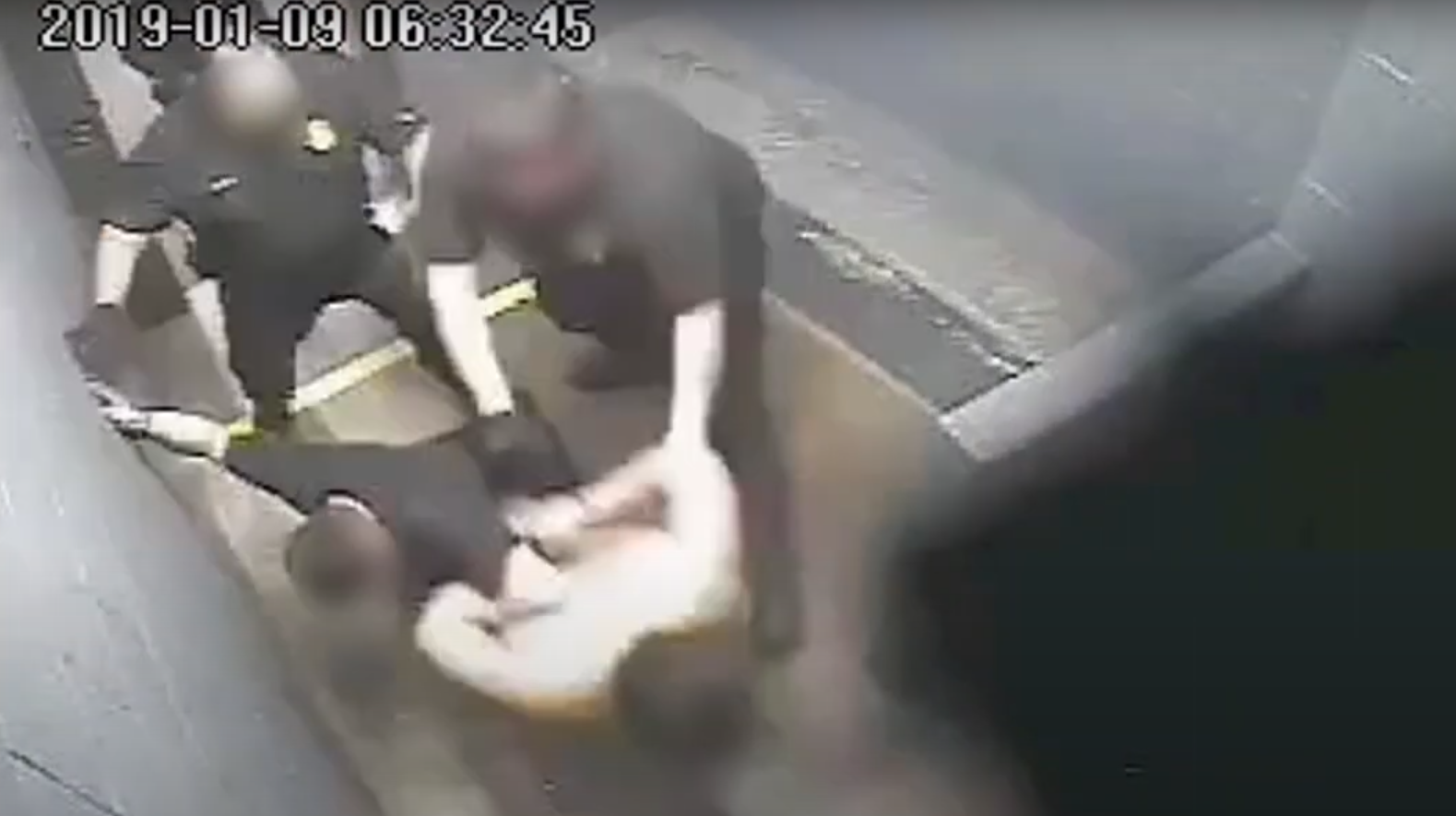Investigation by The Frontier reveals new details about Oklahoma man’s death following violent struggle with jailers

The district attorney of Pottawatomie County, Oklahoma, is reviewing whether criminal charges are warranted in the 2019 death of a Kiowa Tribe member following a violent struggle with jailers.
The renewed scrutiny into the death of Ronald Gene Given comes after a lawsuit Reporters Committee attorneys filed on behalf of The Frontier forced the Pottawatomie County Public Safety Center Trust to turn over jail surveillance video, incident reports, and other records that reveal new information about what happened inside the jail.
The records show that Given appeared to be experiencing a mental health crisis the night of the incident, and that he was tripped, tackled, and slammed face first into the ground, even after being placed in handcuffs, according to an investigation by The Frontier. The records also raise many unanswered questions, including whether detention officers used a Taser on Given. (An attorney for the jail operator told The Frontier that a Taser was not used but wouldn’t comment further because of ongoing litigation filed by Given’s aunt.)
Given’s family and friends have been demanding justice ever since his death was ruled a homicide by the state’s medical examiner three years ago. But it wasn’t until after The Frontier successfully sued the jail operator for access to the surveillance video and other records that the case was re-examined by local prosecutors.
“That video wouldn’t have seen the light of day without the Reporters Committee’s help,” said Brianna Bailey, managing editor of The Frontier, which was represented by Kathryn E. Gardner, the Reporters Committee’s Local Legal Initiative attorney for Oklahoma. “It made all the difference in the world.”
Given ended up in the county jail in January 2019 after he entered a local store in a frenzied state. Originally taken to a hospital for emergency care, he was instead transferred to the county jail while waiting for a bed at a mental health facility after he reportedly shoved a police officer at the hospital.
Given was in jail for fewer than 10 hours before he was transported to a local hospital after suffering from alleged use of force by jail employees. The Shawnee Police Department said there was a struggle between Given and the staff. He died days later. A state medical examiner’s report indicated that Given died from injuries resulting from the officers who restrained him, and ruled the death a homicide.
Since then, The Frontier has been trying to learn more about the circumstances surrounding Given’s death. A former reporter for the news outlet, Kassie McClung, submitted Oklahoma Open Records Act requests to the Pottawatomie County Public Safety Center Trust seeking access to records related to the custody of Given.
In response to the records requests, The Frontier received only the booking and release sheets. Jail operators refused to turn over the rest of the requested records, including videos, mugshots, and incident reports.
In June 2021, Gardner sued the Pottawatomie County Public Safety Center Trust on the news outlet’s behalf, arguing that jail operators were unlawfully withholding public records. Months later, a judge ordered the jail to produce the surveillance video, a ruling later affirmed by an appeals court. The litigation also forced the jail to turn over other records, including incident reports filed by detention officers.
“I definitely felt vindicated” by the rulings, Bailey said. “These were public records and the public should be able to view them. It’s about holding local government accountable for how they treat very vulnerable people.”
Bailey praised Gardner for making sure The Frontier got everything it requested from the jail. She also credited Gardner and Lisa Zycherman, the Reporters Committee’s deputy legal director and policy counsel, with reviewing her investigation before publication to reduce legal risk, a process that she said “made the story stronger.”
Even as the district attorney takes a close look at Given’s death, Bailey said The Frontier will continue its reporting to learn more about what happened. In fact, she said the news outlet recently submitted a new public records request to the jail for Taser usage logs, but it has yet to receive a response.
Since publishing the investigation, Bailey said she’s heard from many community members thanking The Frontier for staying with the story for so long.
“It’s something we’ve been following for three years. Other news outlets had forgotten,” she said. “You hear about someone dying in jail and they flash their mugshot on the evening news and people kind of forget about it. There’s no follow-up. So the family and friends were like, ‘Thank you for staying with this story. We’re glad the truth is coming out.’”
Read The Frontier’s full investigation.
The Reporters Committee regularly files friend-of-the-court briefs and its attorneys represent journalists and news organizations pro bono in court cases that involve First Amendment freedoms, the newsgathering rights of journalists and access to public information. Stay up-to-date on our work by signing up for our monthly newsletter and following us on Twitter or Instagram.